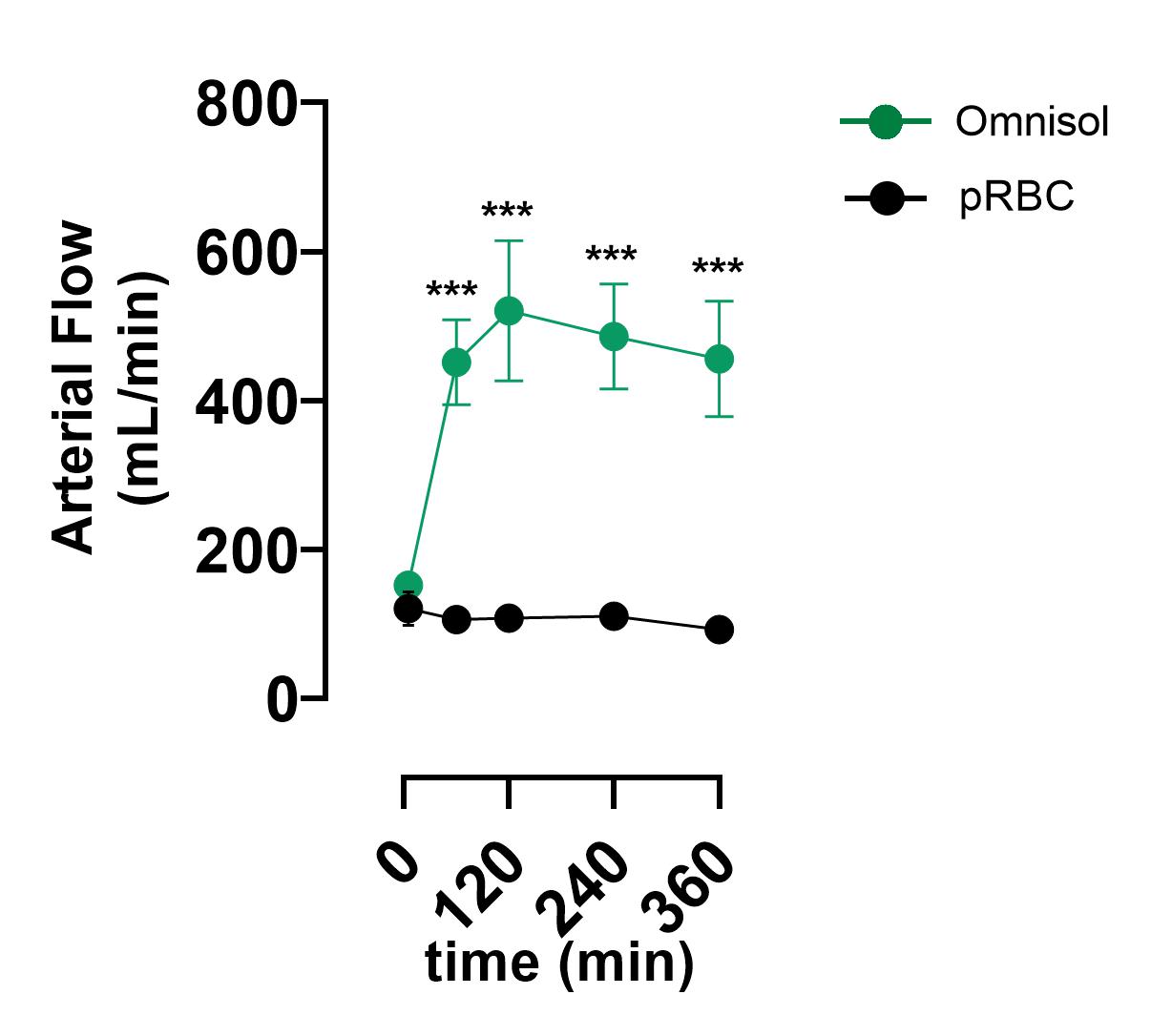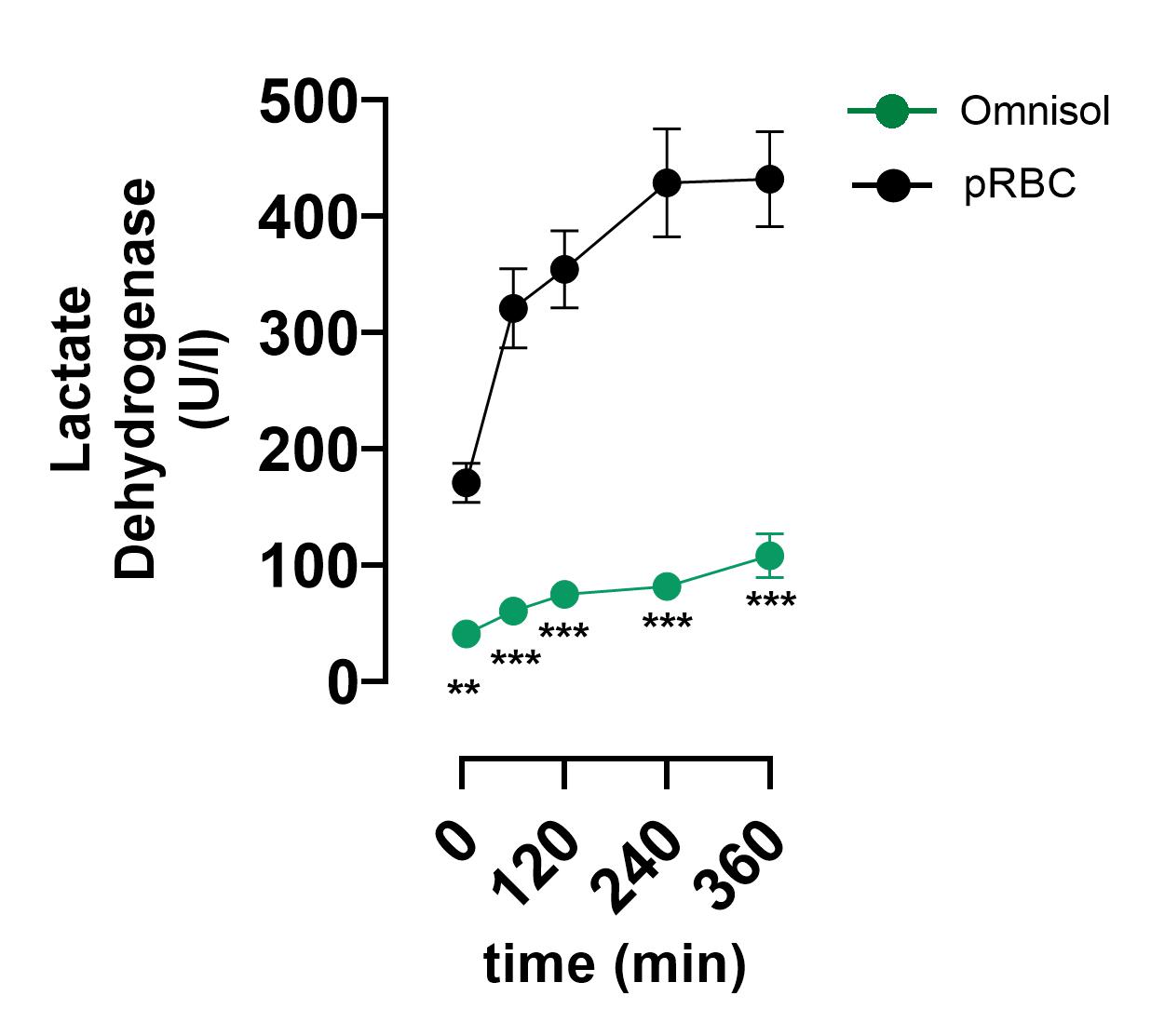Improved preservation by omnisol compared to red blood cell based perfusate for 6 hour normothermic machine perfusion of warm ischemia-damaged porcine kidneys
Laura Zarnitz1, Benedict Doorschodt2, Lisa Ernst2, Tamara Fechter1, Alexander Theissen1, Rene Tolba2, Christian Bleilevens1.
1Department of Anesthesiology, Faculty of Medicine, University Hospital RWTH-Aachen, Aachen, Germany; 2Institute for Laboratory Animal Science and Experimental Surgery, Faculty of Medicine, University Hospital RWTH-Aachen, Aachen, Germany
Introduction: Normothermic machine perfusion (NMP) is increasingly applied in clinical practice since it holds the potential of increasing the viability of marginal grafts. NMP offers the possibility of real-time viability assessment and therapeutic intervention prior to transplantation, in contrast to hypothermic preservation methods. A readily available cell-, albumin- and oxygen carrier-free solution could enhance employment of NMP and potentially prevent adverse effects, such as inflammation transfusion reactions and hemolysis, associated with packed red blood cell (pRBC)-based perfusates.
Method: In this study, the novel cell- and oxygen carrier-free organ preservation solution Omnisol for cold storage and hypothermic machine perfusion was compared to a clinically established pRBC-based perfusate (pRBC) protocols. In the Omnisol group, porcine kidneys were cold stored in Omnisol for 24 h, followed by NMP using the same solution and compared to NMP using pRBC, directly after explantation. All kidneys sustained 20 min of warm ischemic damage and NMP was applied at 75 mmHg using 1L/min oxygenation at 37°C.
Results: In the Omnisol group, arterial flow was over 3-fold higher after 1 h of NMP (p<0.001) and the functional parameters intrarenal resistance, fractional excretion of sodium and potassium were significantly better during 6 h NMP compared to the pRBC group. The damage parameters AST and LDH were over 3-fold lower after 1 h in Omnisol (p<0.001) and oxygenation (arterial pO2) was similar to pRBC.
Conclusion: After 24 h cold storage of warm ischemia-damaged porcine kidneys, Omnisol solution demonstrated improved preservation quality during 6 h NMP compared to direct 6 h NMP using a clinically applied pRBC-based perfusate.

